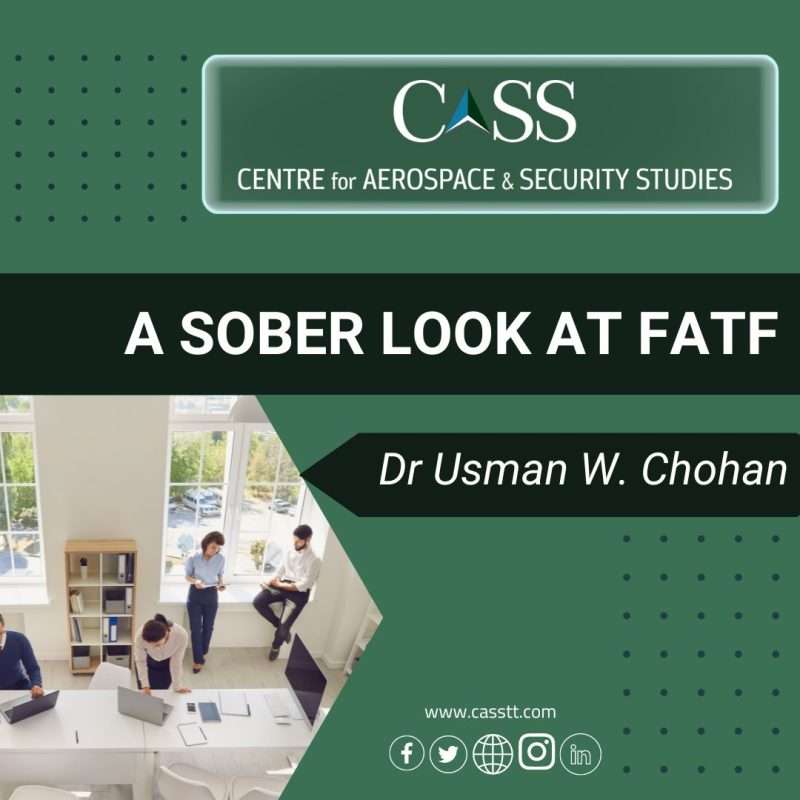The scope of money laundering is tiny in Pakistan compared to that of its eastern neighbor, but India’s dirty money is also dwarfed by the amount of illicit funding that passes through many mainstream banks of the Western world. The fairly recent Russian Laundromat scheme of funnelling wealth from former Soviet nations shows just how Deutsche Bank, supposedly the most pristine financial institution and the largest one in Germany, was complicit in funneling a riot of black money into the developed world. But the FATF has been imbalanced in its targeting of jurisdictions since 9/11, with a disproportionate focus on the countries that the US sought to pressurize in the Middle East and South Asia, even though Russia is the second-largest source of black money flows (at least $100 billion per year since 2013, according to GFI), and many Eastern European countries are prime sources for siphoning illegal wealth. This also has very much to do with how the definition of “terrorist” has changed in the Western psyche since 9/11.
However, the worst offenders of money laundering in the world, as defined by transacting jurisdictions, are hiding in plain sight of the holier-than-thou Western capitals: Jersey, Guernsey, Delaware, Miami, Frankfurt, the US Virgin Islands, the Cayman Islands, the British Virgin Islands, and of course, London. Many of these locations also act as tax havens, and are the biggest players in the game. If the FATF were serious about money laundering, it would seal these places shut, because they ooze with financial corruption on a monumental scale. The Panama Papers, FinCEN Leaks, and countless other revelations give us just a fleeting glimpse of how bad global money laundering is, and Pakistan is nothing but a minor footnote, if ever mentioned at all, on those revelatory lists.
The Pakistani public, its politicians, and its technical experts have all now converged on the point that the FATF is really at fault. It harps on like a broken record by asking incessantly for Pakistan to “do more.” In the process, the FATF has compromised its own legitimacy. Although it does considerable damage, it hasn’t managed to forestall the Pakistani economy, which is composed of largely young people trudging along against the odds. Pakistan’s steps to improve its AML/CFT protocols and praxis should not be seen as a means to satisfying an external body like the FATF: they should be seen as a means of making Pakistan’s financial system more open, transparent and effective; thus doing justice to a young population that is beginning to come of age.
In other words, combating money laundering and stopping terrorist financing are good things in and of themselves, and should not be done to appease anyone abroad but rather to strengthen Pakistan itself.
But the rebuke that the FATF has increasingly received in Pakistan is justified: anti-money laundering activities in modern global capitalism cannot and will not be addressed by punishing Pakistan. Indeed, perhaps no international body has been as bad at doing its job as the FATF: money-laundering and the illicit flows of funds are higher than ever and rising by the day, particularly as newer technologies (cryptocurrencies, ransomware, etc.) make it even more elusive a task.
It is estimated by the firm Market Research Reports (MRR) that global money laundering will exhibit a compound annual growth rate (CAGR) of 15% for each year in the period 2019-2027, which is an astounding rate of growth for any economic activity, let alone that of an illegal sort. How will the FATF face this challenge when it has been captured for political motives?
The writer is the Director for Economics and National Affairs at the Centre for Aerospace and Security Studies (CASS). He can be reached at cass.thinkers@gmail.com.




